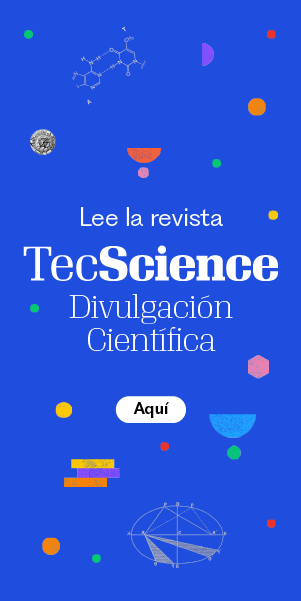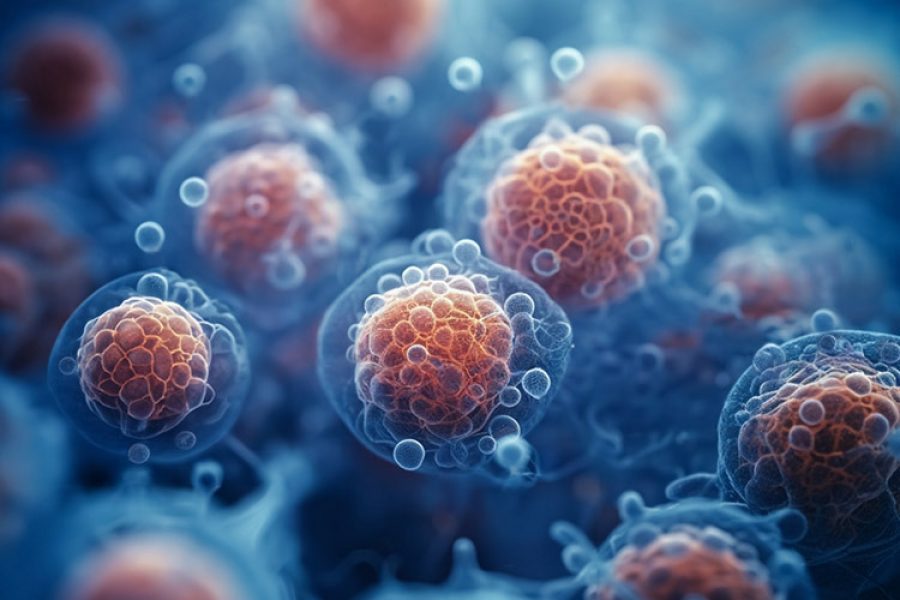By Iván Balderas-León, María Anaberta Cardador Martínez
Today, both developed and developing countries face nutritional problems, including macro- and micronutrient deficiencies that lead to the development of chronic degenerative diseases. Current scientific evidence reveals that regular consumption of vegetable proteins is associated with a reduction in the incidence of chronic diseases rooted in oxidative stress.
The Food and Agriculture Organization of the United Nations (FAO) has launched an initiative to raise awareness of the benefits of pulses as an essential part of a balanced and nutritious diet that helps people stay healthy. This campaign aims to raise public awareness of the advantages afforded by these seeds as part of a nutritious, healthy, sustainable diet by fomenting their cultivation and consumption.
Indeed, there has been growing public interest in nutrition and its role in disease prevention and improvement of overall health, especially when ailments are associated with insufficient, excessive, or unbalanced dietary habits (Ahnen et al., 2019).
What are non-conventional legumes?
Proteins are indispensable macronutrients obtained from food that play a vital role in the optimal functioning of the human body. In particular, proteins derived from legumes belong to the Fabaceae family, which are differentiated from other families by characteristic morphological features such as seeds in a pod.
These seeds have high protein content (15% to 45%). The benefits of eating these legumes include a positive impact on glucose and cholesterol homeostasis, improved intestinal transit, and the possible prevention of certain types of cancer (Usman et al., 2022).
Although soybeans are known worldwide for their high protein content, there are other less recognized, less commonly consumed legumes that are just as nutritious. So-called non-conventional legumes have been grown in various parts of the world since ancient times. Examples of these are guajes (Leucaena spp), cowpeas (Vigna unguiculata), Bambara groundnuts (Vigna subterranea), lupins (Lupinus spp), and jack-beans (Canavalia spp).
The seeds of these legumes are of great importance in the suburban and rural areas of several countries. They are either eaten raw or cooked in traditional dishes depending on their freshness or maturity and form part of these countries’ cultural identity. Recently, due to their nutraceutical potential (and protein content?), these non-conventional legumes have increasingly attracted the attention of researchers (Ismail et al., 2020).
Bioactive peptides… what are they good for?
An evaluation of the beneficial effects of a diet containing proteins and peptides derived from the seeds of these non-conventional legumes is currently in progress.
These peptides (short sequences of amino acids found in these proteins) contain from 2 to 20 amino acids that are produced by enzymatic hydrolysis (in other words, the breakdown of large molecules into smaller fragments with the help of enzymes), microbial fermentation involving the conversion of substances by microorganisms like bacteria or yeasts, as well as food processing or modification by methods such as cooking, drying, or grinding to improve their flavor, texture, or preservation.
In this way, they can be easily absorbed by the body and retain their bioactive properties, which means that they are beneficial to human health. Recent studies (Patel et al., 2024) have associated them with a reduction in the incidence of several types of cancer, high cholesterol levels, type II diabetes, and improvements in insulin secretion and sensitivity through the signaling pathways associated with diabetes.
They have also been linked to inhibition of carbohydrate digestive enzymes (α-amylase and α-glucosidase) and heart disease. Moreover, they have been associated with a decrease in the occurrence of several types of cancer, may activate innate defense mechanisms, and help manage weight loss.
Key features of the bioactive peptides derived from non-conventional legumes, such as low molecular weight, short amino acid sequences and the presence of hydrophobic amino acids (those with low affinity for water that cluster inside proteins to maintain their structure, including valine, leucine, and isoleucine) are essential for their potent anti-inflammatory properties. This is in addition to the inhibitory effect of the angiotensin-converting enzyme (ACE), which has been linked to a reduction in hypertension and also acts as an antioxidant (Singh et al., 2017).
Compared to conventional drugs, these peptides potentially cause fewer side effects. Consequently, they could be of value in the production of functional foods and products that provide antioxidant, antihypertensive, and anti-inflammatory benefits (Hu et al., 2023; Tawalbeh et al., 2023).
Tomorrow’s sustainable proteins
Legume cultivation and consumption is starting to look like a promising way of dealing with environmental challenges and the shifting demands of the food industry and consumers. As far as a positive environmental impact is concerned, legume cultivation encourages crop rotation: a sustainable practice that improves soil quality and the environment.
These plants are capable of enriching soil biodiversity through symbiosis with bacteria of the Rhizobium genus and of converting atmospheric nitrogen into nitrogen compounds, thereby increasing soil fertility. This nitrogen-fixing capacity reduces the need for synthetic fertilizers, which in turn reduces energy consumption and greenhouse gas emissions. These benefits highlight the need for ongoing research and the promotion of legume cultivation and consumption as an essential part of a comprehensive strategy in favor of environmental sustainability and human health.
Research on the beneficial effects of non-conventional legumes focuses on the bioactive peptides and proteins they contain and is supported by epidemiological studies and scientific evidence proving their effects. It is crucial to continue conducting research into these compounds as their effectiveness may depend on factors such as their concentration in food, time of exposure, and how they interact with other dietary components.
Coordinated research is being done at Tecnológico de Monterrey’s Biotechnology Department and the University of Guadalajara’s Molecular Biology Laboratory to gain an in-depth understanding of the health effects of non-conventional legumes.
In recent years, consumer demand for safer, more nutritious, more appetizing quality foods has increased. Developing countries, especially those with rural communities, have broad experience in the consumption and preparation of non-conventional legume seeds, despite the presence of non-nutritional agents such as lectins (which may cause inflammation and intestinal damage by binding to carbohydrates in the intestine) or phytates (which hinder their absorption by binding to minerals such as iron, calcium, zinc and magnesium in the digestive tract).
Saponins may also hinder the absorption of nutrients and minerals, but proper processing and cooking helps reduce or eliminate the presence of these non-nutritional agents in food, thereby ensuring that they are safe and healthy to eat.
This experience can serve as a guide to food industries seeking to improve the quality of their vegetable products. Moreover, the increasing availability of packaged, ready-to-eat pulses makes it easier for people to rediscover a healthier diet.
References
- Ahnen, R. T., Jonnalagadda, S. S., & Slavin, J. L. (2019). Role of plant protein in nutrition, wellness, and health. Nutrition Reviews, 77(11), 735–747.
- Hu, K., Huang, H., Li, H., Wei, Y., & Yao, C. (2023). Legume-Derived Bioactive Peptides in Type 2 Diabetes: Opportunities and Challenges. Nutrients, 15(5). https://doi.org/10.3390/nu15051096
- Ismail, B. P., Senaratne-Lenagala, L., Stube, A., & Brackenridge, A. (2020). Protein demand: review of plant and animal proteins used in alternative protein product development and production. Anim. Front., 10(4), 53–63. https://doi.org/10.1093/af/vfaa040
- Singh, B., Singh, J. P., Shevkani, K., Singh, N., & Kaur, A. (2017). Bioactive constituents in pulses and their health benefits. Journal of Food Science and Technology, 54(4), 858–870. https://doi.org/10.1007/s13197-016-2391-9
- Tawalbeh, D., Al-U’datt, M. H., Wan Ahmad, W. A. N., Ahmad, F., & Sarbon, N. M. (2023). Recent Advances in In Vitro and In Vivo Studies of Antioxidant, ACE-Inhibitory and Anti-Inflammatory Peptides from Legume Protein Hydrolysates. Molecules, 28(6).
- Patel, L., La Vecchia, C., Negri, E., Mignozzi, S., Augustin, LSA, Levi, F., Serraino, D., Giacosa, A., & Alicandro, G. (2024). Legume intake and cancer risk in a network of case-control studies. European Journal of Clinical Nutrition.
- Usman, M., Khan, W.R., Yousaf, N., Akram, S., Murtaza, G., Kudus, K.A., Ditta, A., Rosli, Z., Rajpar, M.N., & Nazre, M. (2022). Exploring the Phytochemicals and Anti-Cancer Potential of the Members of Fabaceae Family: A Comprehensive Review. Molecules, 27(12).
Authors
María Anaberta Cardador Martínez is a research professor at the School of Engineering and Sciences on Tecnológico de Monterrey’s Querétaro campus. She holds a degree in Chemistry and a doctorate in food science from the Autonomous University of Querétaro. Cardador Martínez has worked in research centers (CIATEJ) and universities (UAQ and UTM) and has taught topics such as food and biotechnology (including biochemistry and bioseparations) at Tecnológico de Monterrey’s Querétaro Campus since 2007. She is currently doing research on natural products, extracting biomolecules, and evaluating their biological activity.
Iván Balderas-León is a post-doctoral professor at the University of Guadalajara’s University Center of Exact Sciences and Engineering (CUCEI for its initials in Spanish). He holds a doctorate in biotechnology from Tec de Monterrey and his experience includes research projects and published articles. Balderas-León has also developed analytical methods in the pharmaceutical industry. He is currently involved in nanotechnology and nutraceutical projects in addition to robust projects focused on quality results. Motivated by a strong social commitment, he shares his knowledge to contribute to Mexico’s development.

















